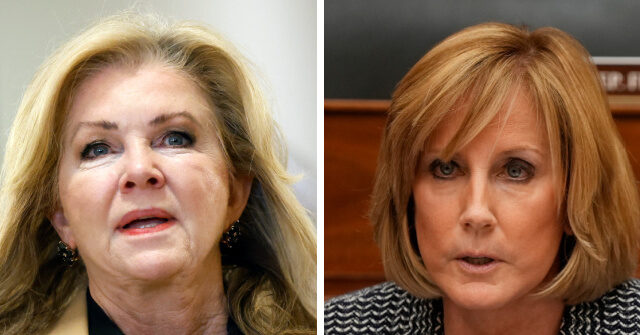On Wednesday, U.S. Senator Marsha Blackburn (R-TN) and Representative Claudia Tenney (R-NY) introduced a legislative package known as the DOGE Act, aimed at implementing significant reforms in federal government operations. The core objectives of the DOGE Act include freezing government spending, enhancing accountability among bureaucrats, and reducing the size of the federal workforce. Blackburn emphasized that the American public is frustrated with what they see as an overly large bureaucracy and excessive wastefulness in government expenditure. The proposed measures are intended to reinvigorate government efficiency, mandating federal employees to return to in-person work, decentralizing federal agencies to regions outside of Washington, D.C., and implementing rigorous spending cuts.
Among the key components of the DOGE Act is the Federal Freeze Act, which aims to halt increases in salaries for federal civilian employees for one year. The act would also impose a cap on federal employment numbers over a three-year span and seek to reduce the overall workforce at federal agencies. The intention is to ensure a leaner government structure that can operate more efficiently and responsively. This freezing and limiting of workforce expenditure is positioned as a necessary step towards managing taxpayer money more effectively and addressing concerns about the growing size of the federal government.
Another critical element of the DOGE Act is the Commission to Relocate the Federal Bureaucracy Act. This initiative seeks to distribute non-security government agencies across various states based on criteria such as economic efficiency and existing infrastructure. By relocating federal agencies outside of the traditional centers of power, proponents believe that the federal government can cut costs, improve accessibility, and foster local economies. This plan resonates with both fiscal conservatism and a larger trend of questioning whether an extensive bureaucratic power structure should be concentrated in the nation’s capital.
The Federal Employee Performance and Accountability Act proposes a performance-based pay structure for federal workers, aiming to link compensation to productivity and effectiveness. This legislation reflects a desire to instill a culture of accountability within government agencies, ensuring that employees are rewarded for their contributions rather than maintaining a status quo that promotes complacency. By introducing performance metrics, lawmakers hope to drive improvement and efficiency within federal operations, thereby enhancing overall government effectiveness.
Moreover, the Stopping Home Office Work’s Unproductive Problems (SHOW UP) Act mandates that federal employees return to physical offices, countering the trend of remote work that has gained traction, especially during the COVID-19 pandemic. Under this act, any telework arrangements would need to be approved by the Office of Personnel Management (OPM). The underlying rationale is that in-person work fosters better collaboration and productivity among federal agencies, which could result in improved service delivery to the public.
In conclusion, the DOGE Act represents a comprehensive effort by Blackburn and Tenney to reshape federal government operations dramatically. The proposed legislation embodies a commitment to reducing wasteful spending and enhancing accountability, while also promoting a more decentralized and efficient government structure. As the sponsors frame it, this initiative aligns with the broader Republican agenda of streamlining bureaucracy and making government more responsive to the needs of its citizens. By championing these reforms, Blackburn and Tenney hope to lay the groundwork for a government that operates more effectively, ultimately benefiting taxpayers and ensuring that the federal workforce is both accountable and performance-oriented.

